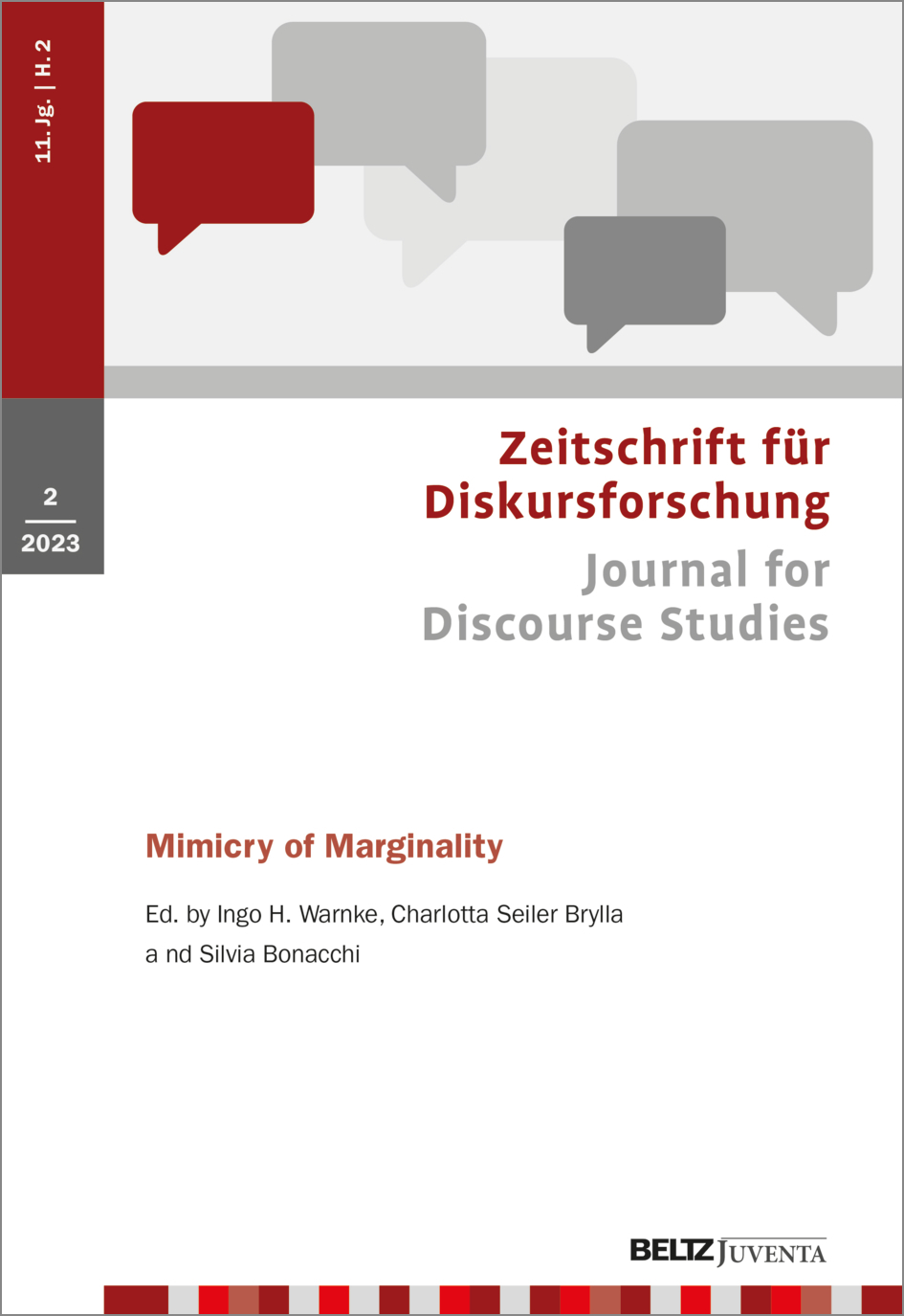
The paper deals with discursive portrayals of language learning and language learners. In a combination of quantitative and qualitative approaches, it asks whether the status of the language learner is constituted as a phenomenon of marginality or of centrality in current discourses in Germany, and whether this may in some instances be seen as a mimicry of marginality. The qualitative part of the analysis takes positionings by learners and native speakers into account, considering linguistic ways of constituting both the self and others with regard to language(s) and learning. The paper also discusses whether the status transition of a person from learner to language »expert« is depicted as possible, and whether learning a language offers a form of prestige.
Mattfeldt, Anna. 2024. »Everything a Learner Needs« – Constructions of Linguistic and Social Marginality/Centrality in Discourses about (German) Language Learning and Multilingualism. Zeitschrift für Diskursforschung 2023 (2). S. 204–225.
print
ISSN: 2195-867X
ebook
DOI: 10.3262/ZFD2302204